Indigenous Governance Database
Other Papers & Reports
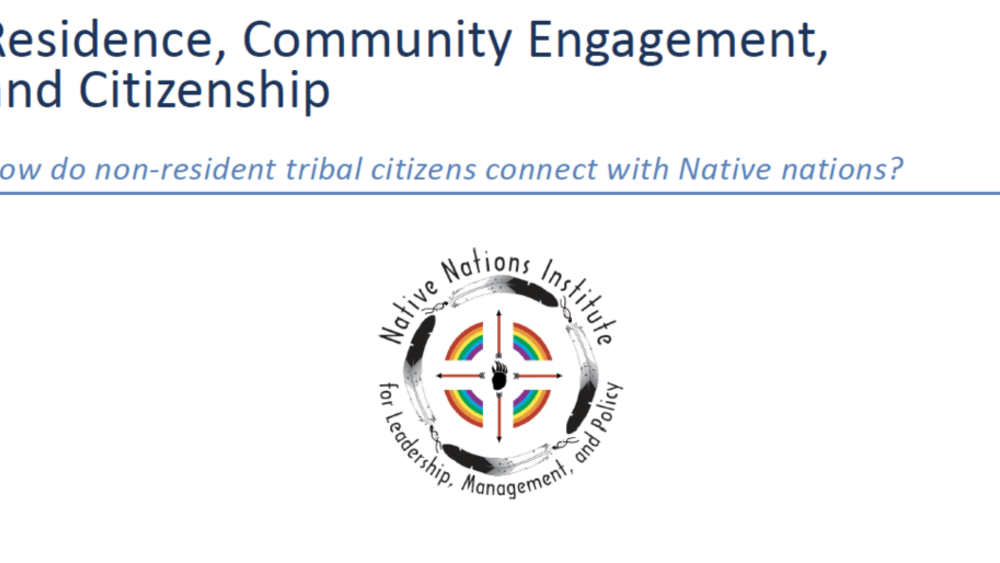
Residence, Community Engagement, and Citizenship: How do non-resident tribal citizens connect with Native nations?
The research draws from an online survey targeted primarily at younger tribal citizens living away from tribal lands; this project provides preliminary insight into 1) non-resident citizens' engagement with their tribes, and 2) the ways tribes might connect more effectively with non-resident…
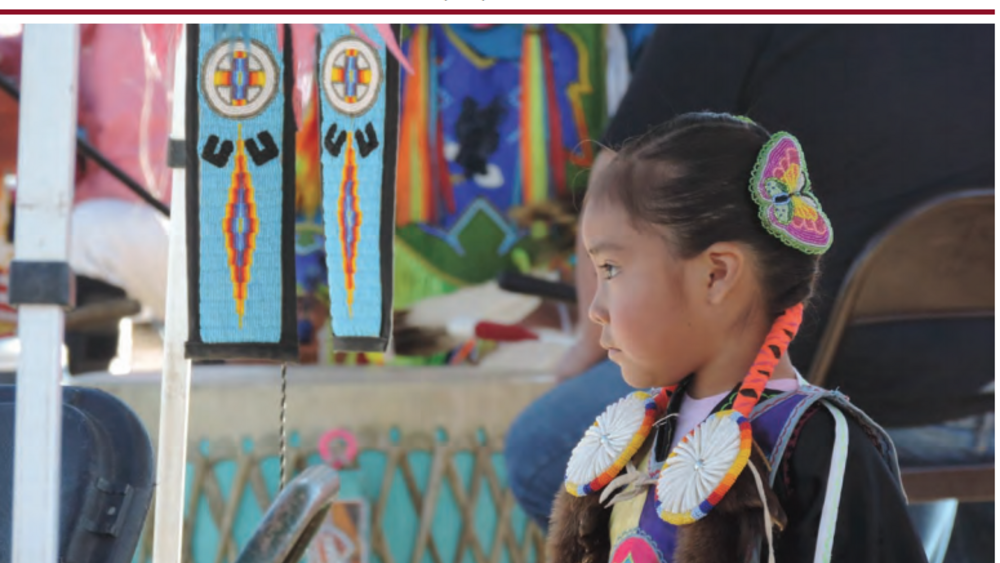
Tribal Child Welfare Codes as Sovereignty in Action. 2016 NICWA conference edition
With passage of the Indian Child Welfare Act of 1978 (ICWA), Congress formally recognized Native nations’ inherent authority to govern child welfare matters and provided support for tribal self-determination over child welfare. Because ICWA “assumes that a tribal code is the governance mechanism by…
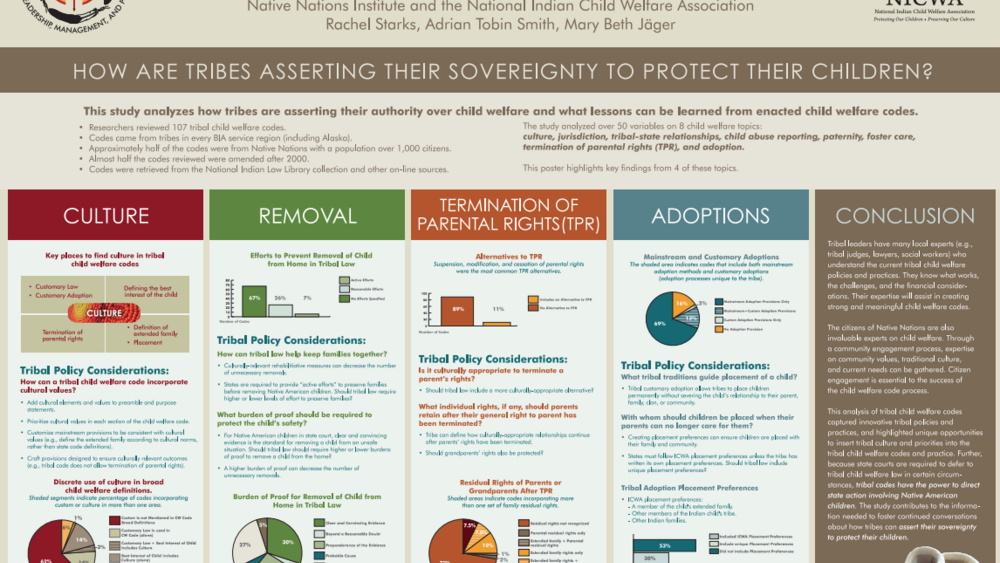
Protecting Our Children: A Review of 100+ Tribal Welfare Codes
NNI researchers Mary Beth Jäger (Citizen Potawatomi), Rachel Starks (Zuni/Navajo), and National Indian Child Welfare Association governmental affairs staff attorney, Adrian Smith shared the results of an ongoing study on culture, removal, termination of parental rights, and adoption in tribal child…
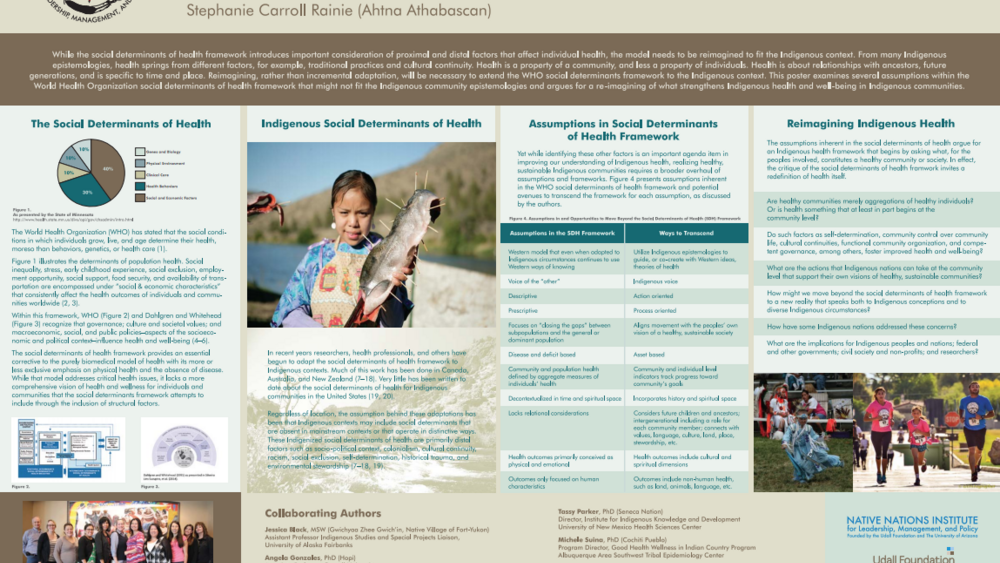
Reimagining Indigenous Health: Moving Beyond the Social Determinants of Health
Senior researcher Stephanie Carroll Rainie critiqued the application of social determinants of health models in Native communities and challenged readers to reconsider how they think about Indigenous health.
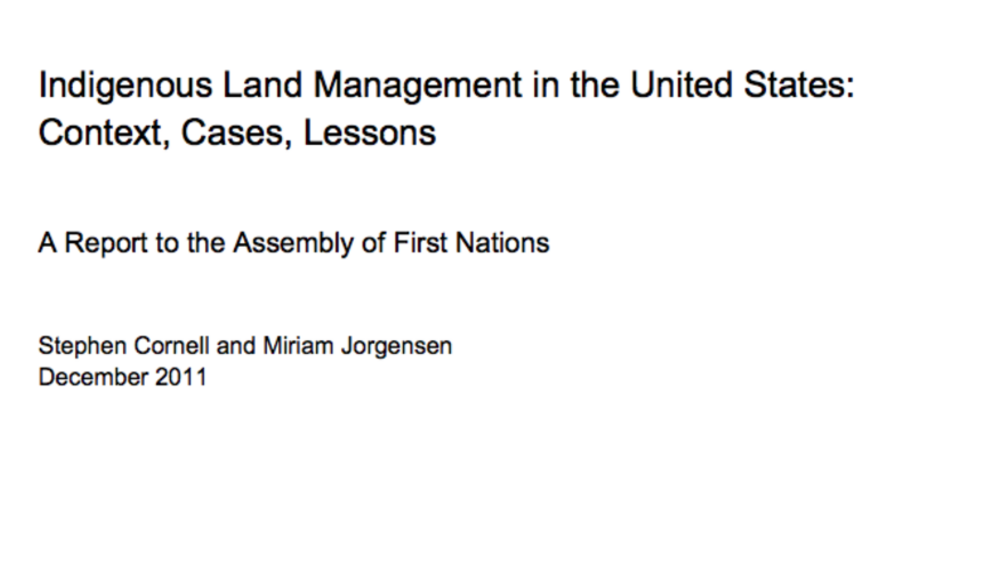
Indigenous Land Management in the United States: Context, Cases, Lessons
The Assembly of First Nations (AFN) is seeking ways to support First Nations’ economic development. Among its concerns are the status and management of First Nations’ lands. The Indian Act, bureaucratic processes, the capacities of First Nations themselves, and other factors currently limit the…
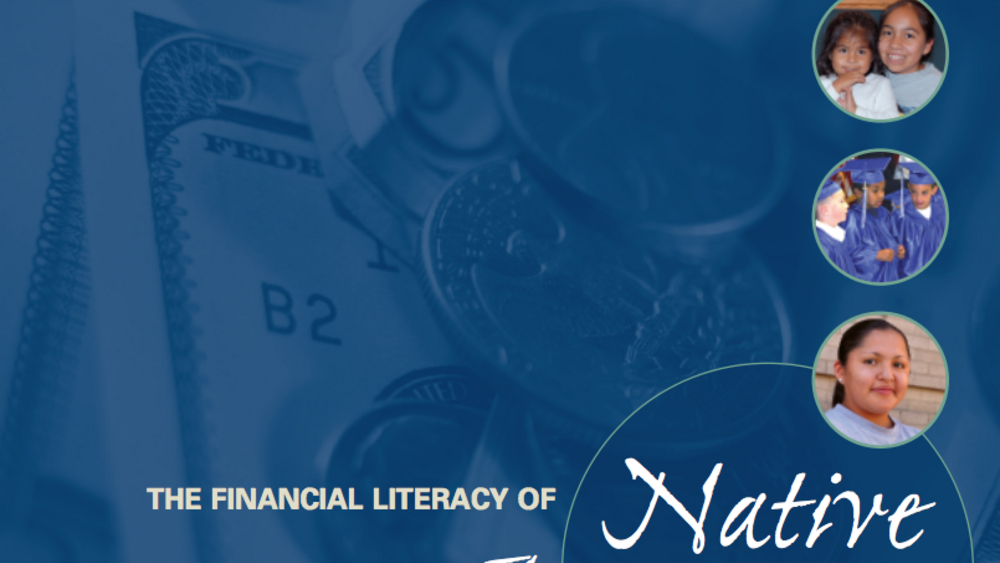
The Financial Literacy of Native American Youth
Tests of high school students conducted by the Jump$tart Coalition for Personal Financial Literacy indicate that Native American youth are less prepared to make informed financial choices than most of their peers. Jump$tart and the members of the Native Financial Education Coalition (NFEC) are…

Bitsi' Yishtlizhii Dine'é Binaaish Binahji' Yéego Bee Bidziilgo Deiílyeedígíí
The poverty of Indigenous North Americans, especially those living on reservations, has concerned Indian and federal policymakers for more than a century. After the treaty-making phase and the establishment of the reservation system, federal policies to address Native poverty vacillated between…

Determinantes de sucesso no desenvolvimentodas nacoes Indígenas dos Estados Unidos (Portuguese)
A pobreza dos indígenas norte-americanos, principalmente daqueles que vivem nas reservas, tem preocupado os responsáveis pela definição de políticas indígenas e federais por mais de um século. Depois da fase de negociação dos tratados e do estabelecimento do sistema de reservas, as medidas…

Determinantes del Éxito del desarrollo En las Naciones nativas de los Estados Unidos (Spanish)
La pobreza de los indígenas norteamericanos, especialmente los que viven en las reservaciones, han preocupado ambos políticos Indígenas y Federales por más de un siglo. Después de la fase de la fabricación del tratado y del establecimiento del sistema de reservación, las políticas federales para…
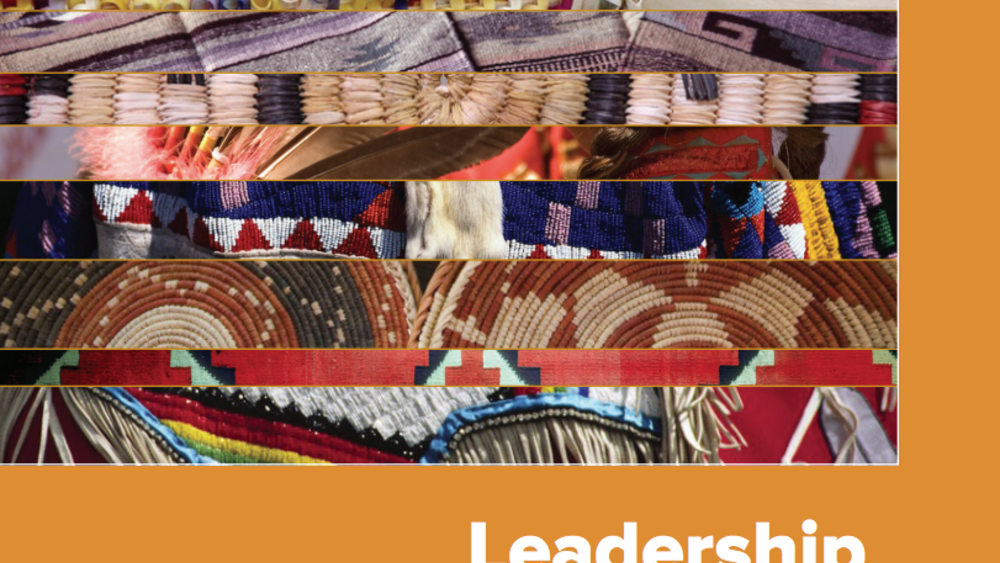
Leadership Development in the Native Arts and Culture Sector
Burgeoning cultural renewal in Native America and growing mainstream recognition of Native artists and their ideas have resulted in substantial growth in the Native arts and culture sector. The leaders of Native arts and cultural organizations have been a significant force behind this change. They…
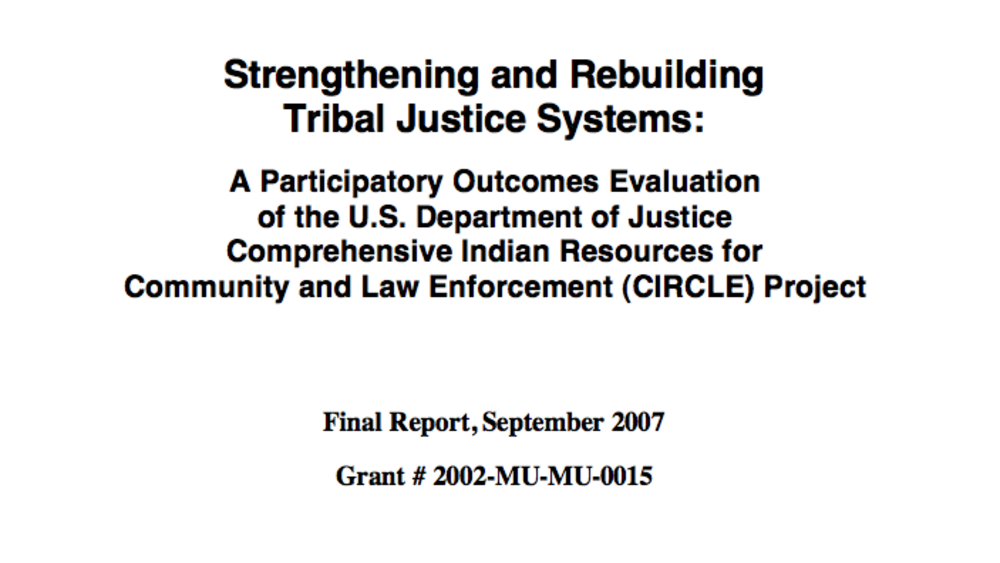
Strengthening and Rebuilding Tribal Justice Systems
Assesses the U.S Department of Justice's Comprehensive Indian Resources for Community and Law Enforcement (CIRCLE) Project, which aimed to help participating tribes implement strategies for making the individual components of their justice systems work better in addressing crime and related social…

Borrowing Trouble: Predatory Lending in Native American Communities
With the collapse of the subprime mortgage lending market, predatory lending has become a significant national concern. In Native communities, however, predatory lending has been a major concern for years, since abusive lending practices have tended to proliferate more in minority and low-income…
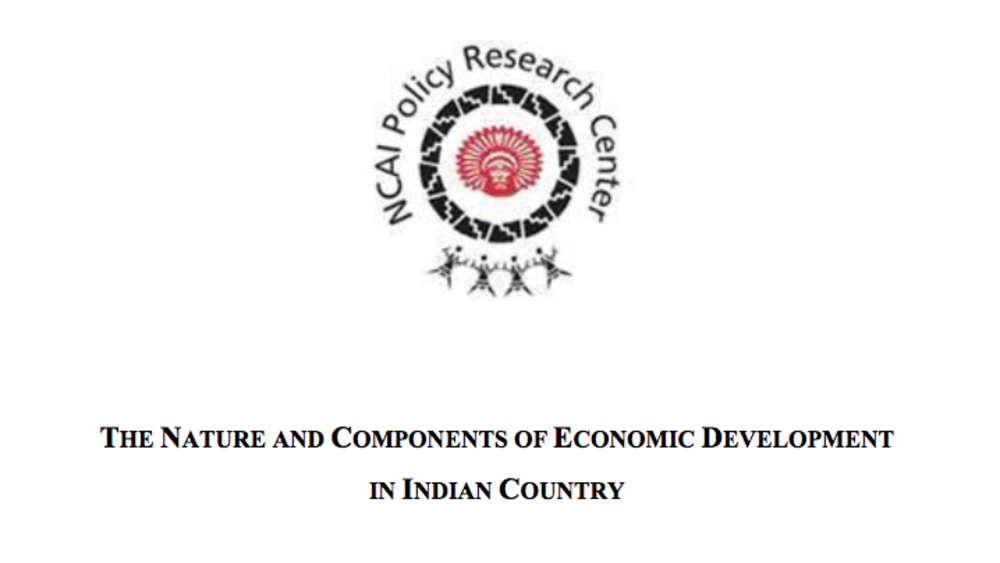
The Nature and Components of Economic Development in Indian Country
Defines what economic development means and how it applies in Indian Country; looks at the changing patterns of Indian Country economic development; debunks some of the myths and misconceptions about economic development in Native nations; suggests policy options for both Indigenous nations and the…
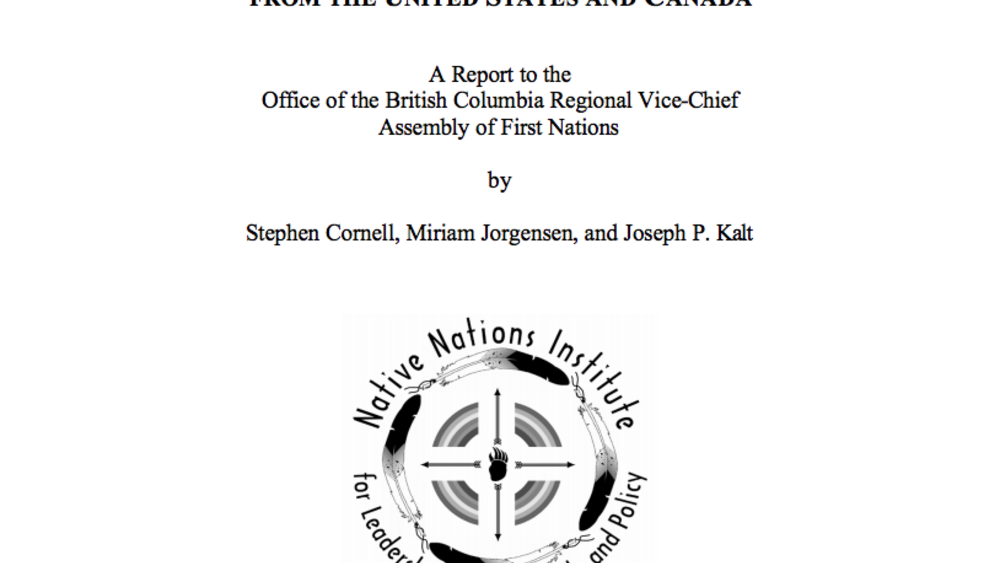
The First Nations Governance Act: Implications of Research Findings from the United States and Canada
In the spring of 2002, the Office of the British Columbia Regional Vice-Chief of the Assembly of First Nations (AFN) asked the Native Nations Institute for Leadership, Management, and Policy at The University of Arizona to provide that office with an analysis of the First Nations…
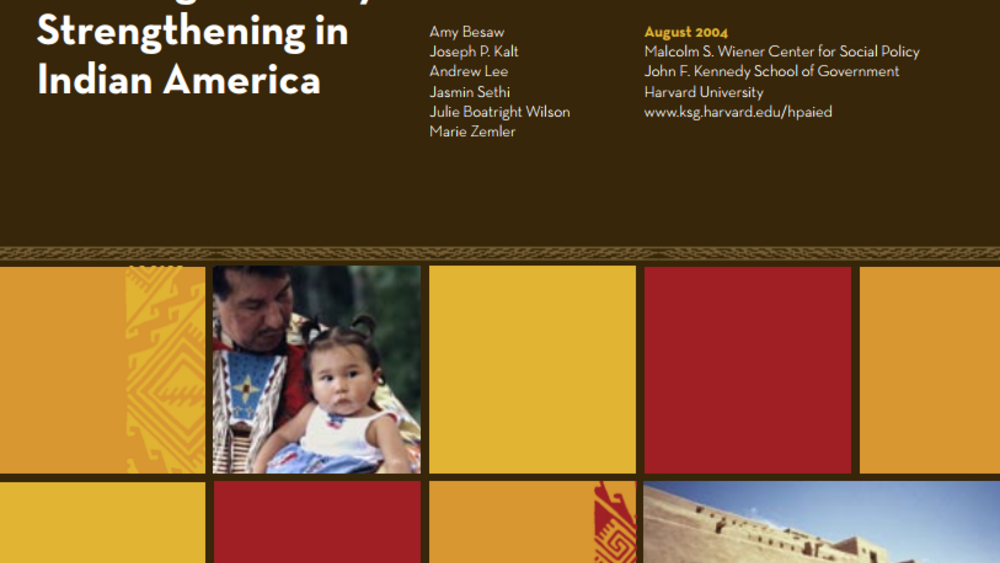
The Context and Meaning of Family Strengthening in Indian America
This report presents five specific, field-based case studies of successful efforts to support the well-being of Native American children. These successful programs were conceived of, implemented by, and generally funded by Tribal communities. These programs include the Ya Ne Day ah School in…

Making First Nation Law: The Listuguj Mi'gmaq Fishery
This is a case study that explores Listuguj Mi'gmaq law, an assertion and manifestation of the nation's right to fish and to govern its people, lands, and waters in its own ways. It discusses the genesis, application, and effects of the law and how a First Nation not only reclaimed their inherent…
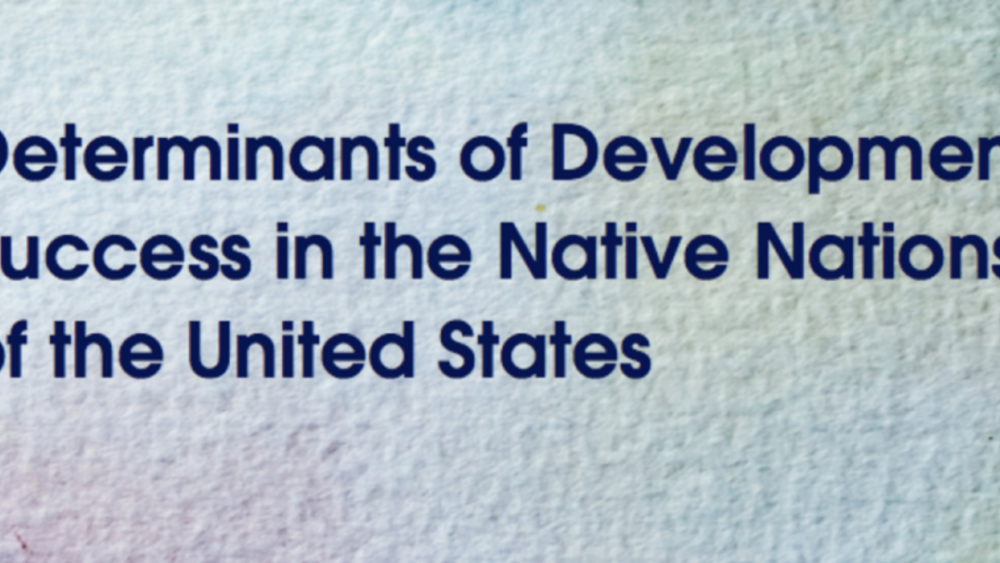
Determinants of Development Success in the Native Nations of the United States (English)
The poverty of indigenous North Americans, especially those living on reservations, has concerned Indian and federal policymakers for more than a century. After the treaty making phase and the establishment of the reservation system, federal policies to address Native poverty vacillated between…
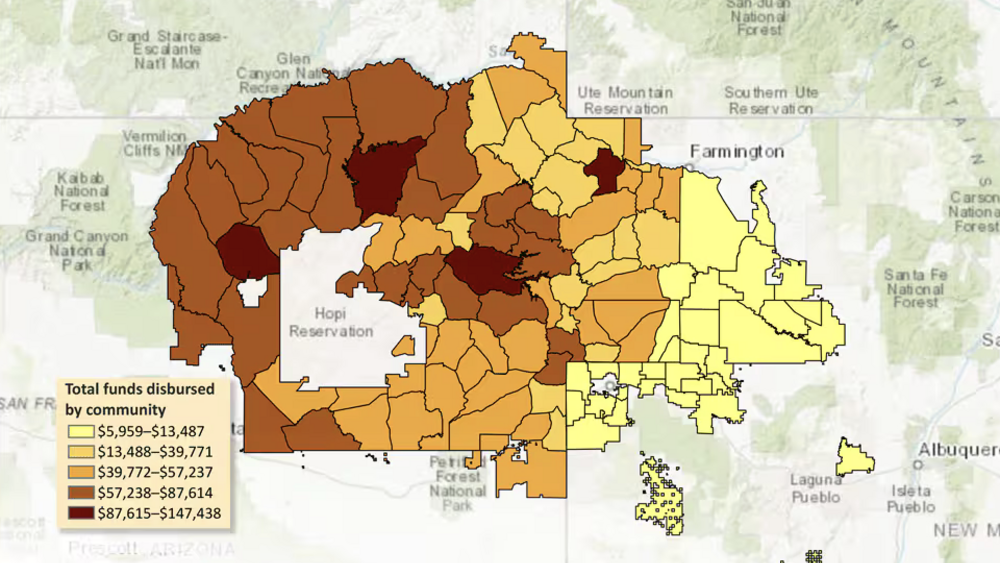
The Navajo Nation Healthy Diné Nation Act: A Two Percent Tax on Foods of Minimal-to-No Nutritious Value, 2015–2019
Our study summarizes tax revenue and disbursements from the Navajo Nation Healthy Diné Nation Act of 2014, which included a 2% tax on foods of minimal-to-no nutritional value (junk food tax), the first in the United States and in any sovereign tribal nation. Since the tax was implemented in 2015,…
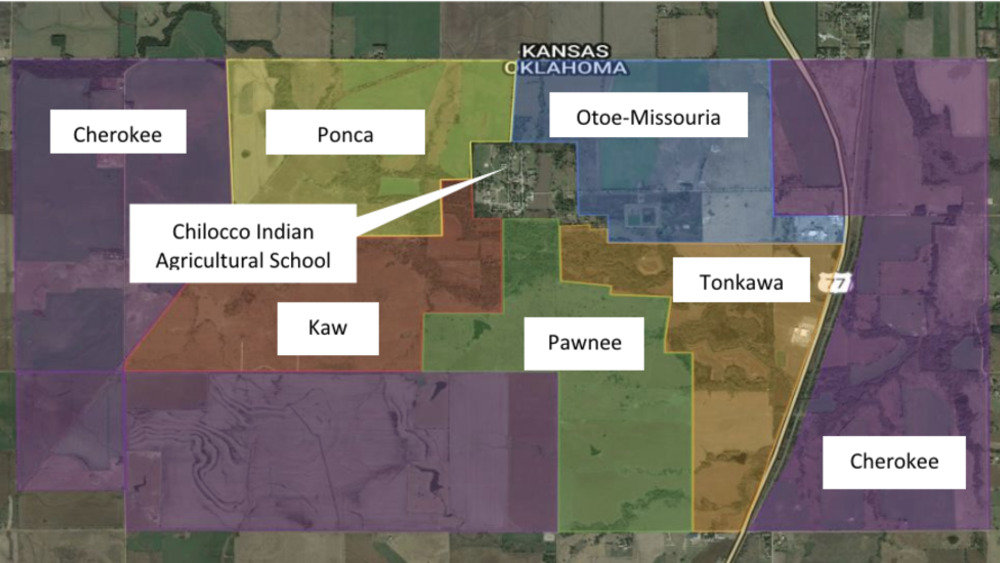
Cherokee Wind Energy Development Feasability and Pre-Construction Studies
Cherokee Nation Businesses (CNB) received a grant from the US Department of Energy to explore feasibility and pursue development of a wind power generation facility on Cherokee land in north-central Oklahoma. This project followed several years of initial study exploring the possibility of…

President's State, Local, and Tribal Leaders Task Force on Climate Preparedness and Resilience: Recommendations to the President
As the Third National Climate Assessment makes clear, climate change is already affecting communities in every region of the country as well as key sectors of the economy. Recent events like Hurricane Sandy in the Northeast, flooding throughout the Midwest, and severe drought in the West have…
Pagination
- First page
- …
- 2
- 3
- 4
- …
- Last page
